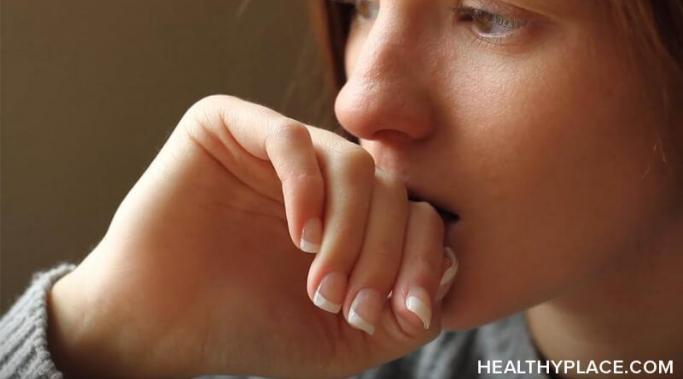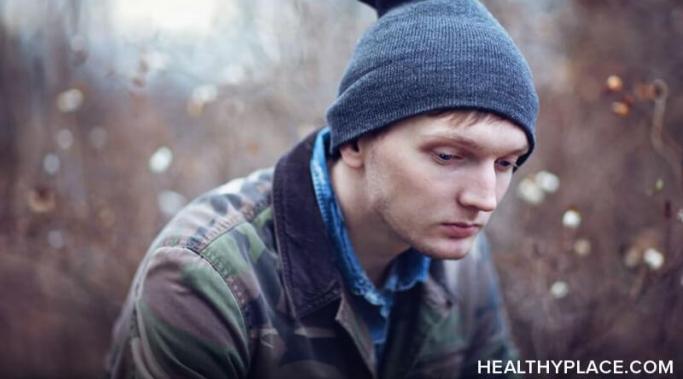I control my daydreaming to lessen depression. I know "controlling your daydreaming" sounds a bit odd, but I've found that most mental processes can be controlled to some extent by paying attention. Interestingly, a new study has come out suggesting I had the right idea all along. If you control your daydreaming, you might reduce depression.
Coping
Drinking alcohol with bipolar is a no-no, but over the holidays, it can be hard to remember that. After all, at holiday parties, everyone seems to be drinking. What might help is understanding why people with bipolar disorder shouldn't imbibe alcohol.
Some people with bipolar seem like they're so angry. Sometimes, I'm one of those people. I don't take this feeling out on other people, but that doesn't mean I don't feel the anger intensely. Let's discuss why bipolar makes me so angry.
Rumination can be part of depression, and it's critical to understand and recognize depressed ruminations because they can just be the start of a horrible cycle. I have experienced ruminations in depression many times, but now I recognize them and know what to do to mitigate them.
Somewhere along the way, the political correctness (PC) police decided that we were no longer allowed to say that we "suffer" from bipolar disorder. Now, we have to say that we "live with" or "experience" bipolar disorder. If you know me, you can probably guess how I feel about that. I feel it's ridiculous. It puts unnecessary rules on language, which, as a writer, I despise, but perhaps more importantly, it genuinely denies people's legitimate experience of a serious mental illness. I suffer from bipolar disorder, and I think it's okay to say it.
There are many times when I can't think. It's a bit of a problem for a contracted writer. You do need to be able to think in order to write. And in spite of the fact that it impacts my livelihood, I can't think way too often.
I'm far too acquainted with crying outbursts in front of other people. I have been experiencing them since, almost forever. Depression has been my companion, off and on since, almost forever. And I have experienced the shame and embarrassment that comes with them since, almost forever. And yesterday was one such experience. Today, I want to talk about what it's like to have a crying outburst in front of others and how to handle it when it happens to you.
I hate pop psychology a lot. And I hate pop psychology a lot for a very good reason: it harms those with mental illness (among others). Pop psychology aims to answer the mind's and the brain's questions with simplistic, easily digestible answers. Unfortunately, the brain and mind don't actually work like that. The body and the psyche require more than what pop psychology has to offer. So, yes, I hate pop psychology.
While suicidality is often driven, at least in part, by lifestyle factors, a person with a good life can still be suicidal. This doesn't make sense to many people. How can someone with an objectively good life feel like they want to die? The answer to that is simple and complex. A person with a good life can be suicidal because of the brain.
Dating with an invisible illness has its pitfalls. When do you tell someone about your illness? When do you explain the impacts your illness has on your life? How do you try to make an invisible illness visible to the person you're dating? My own forays into the dating pool have been making me think about just these questions.









